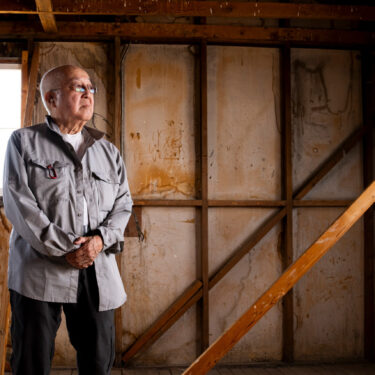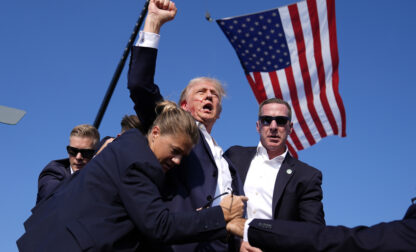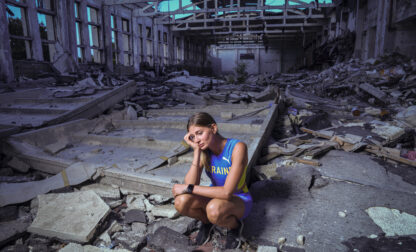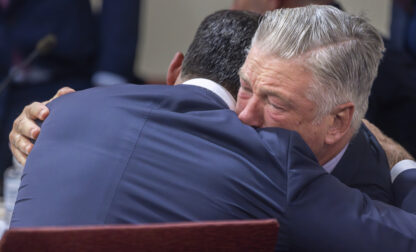Now, a huge proposed wind farm on Idaho’s high desert could cast shadows on the site if it’s built nearby. Wasson teamed with Olympia, Washington, reporter Ed Komenda to shed light on the clash that’s built around one of the stains on U.S. history that’s often forgotten.
The pair used an annual summertime pilgrimage by camp survivors and their descendants to Minidoka as the vehicle to tell the larger story. They planned ahead for Wasson’s trip to remote Idaho, which fell between the U.S. Open and the MLB’s All-Star Series, and identified and interviewed multiple potential subjects by phone. Komenda also dug into AP archives for historical context to help capture what life was like for prisoners there.
Working with Climate and Environment team editors Tim Reiterman and Alyssa Goodman, Komenda wrote the main story by combining Wasson’s extensive interviews with his reporting, while Wasson helped bring the story and portrait series to life.
They produced a beautifully crafted main story that captured Minidoka and the tension between those who want to preserve a camp that painfully shaped the Japanese American experience and a wind project that would be the country’s second largest.
Wasson photographed the site, pilgrimage events and explored her own family’s history while connecting with survivors and descendants for what became a striking series of portraits. The second story opened with Wasson’s first-person account of her visit — including discovering her grandfather’s name in a ledger — and then transitioned to photo portraits of more than a dozen people and their stories.
For delivering a poignant portrait that shed light on people hoping not to see their histories get further cast into the shadows, Wasson and Komenda are this week’s Best of the Week — Second Winner.
Visit AP.org to request a trial subscription to AP’s video, photo and text services.
For breaking news, visit apnews.com.




